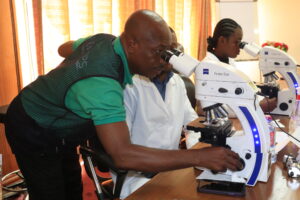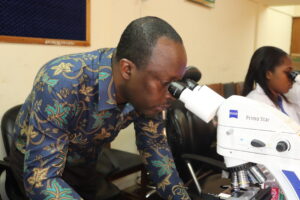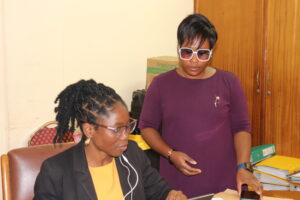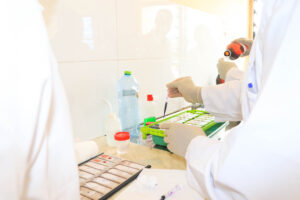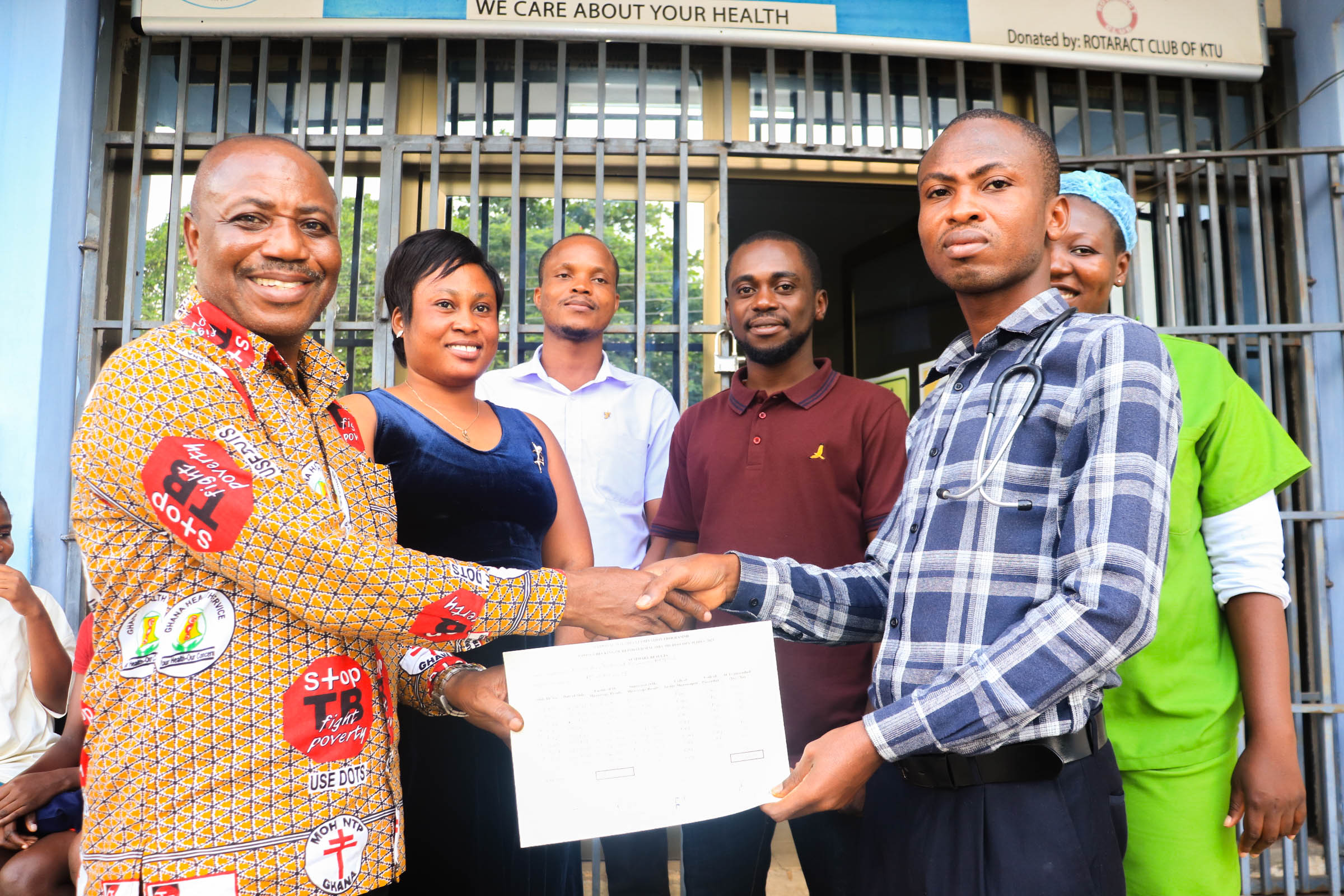Koforidua Technical University (KTU), in its continuous commitment to health excellence and capacity building, successfully organised a three-day Malaria Diagnostic Refresher Training for its medical laboratory staff. The training took place from July 14 to July 16, 2025, and was aimed at enhancing the knowledge and practical skills of laboratory professionals in the accurate diagnosis of malaria, one of Ghana’s most prevalent public health concerns.
Organised in collaboration with health training facilitators and laboratory experts, the workshop brought together participants from the university’s health directorate and affiliated medical units. The training combined theory with intensive hands-on practice to ensure participants could confidently apply updated diagnostic procedures in their professional environments.
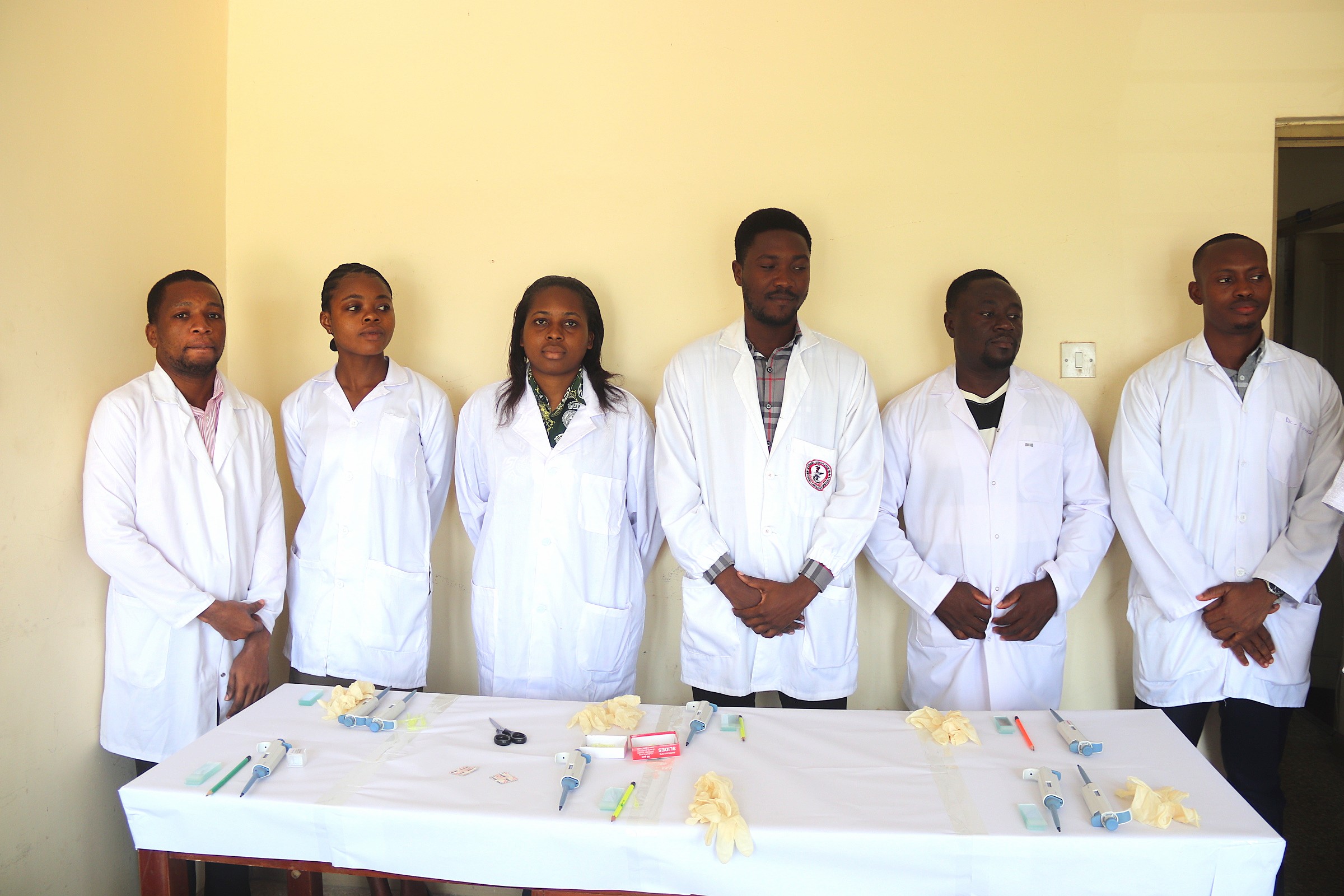
Core Components of the Training Included:
-
Pre-Training Assessment:
Participants underwent a structured pre-test to evaluate their baseline knowledge and identify key areas of improvement. -
Slide Preparation Techniques:
Trainees were introduced to best practices in preparing high-quality blood smear slides, a fundamental step in malaria microscopy. -
Parasite Identification:
Guided microscopy sessions helped participants enhance their ability to detect and differentiate malaria parasites in blood samples. -
Parasite Counting Procedures:
Emphasis was placed on the proper methods for counting parasites per microliter of blood to ensure accurate disease staging and treatment planning. -
Species Differentiation:
Attendees were trained to identify the different species of malaria parasites — a critical skill for determining appropriate treatment regimens. -
Post-Training Assessment:
A comprehensive post-test was administered to evaluate knowledge retention, practical improvement, and overall mastery of the training content.
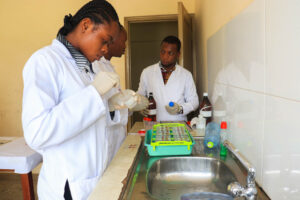
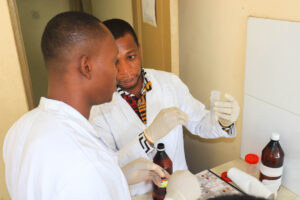
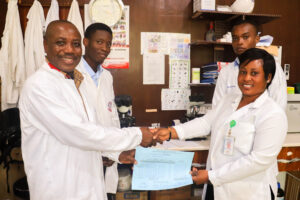
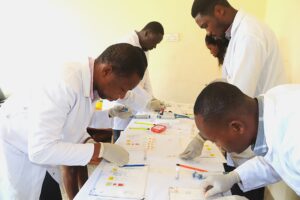
Impact and Outlook
The refresher training concluded with commendations from both facilitators and participants, highlighting its relevance and impact on laboratory practice. By equipping laboratory professionals with up-to-date diagnostic skills, the initiative is expected to improve the accuracy of malaria diagnosis at KTU’s health facilities and contribute positively to patient care outcomes within the university and surrounding communities.
This program underscores KTU’s dedication to professional development, public health advancement, and its role in supporting Ghana’s broader efforts to combat malaria through early detection and effective treatment.
